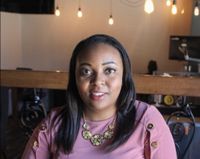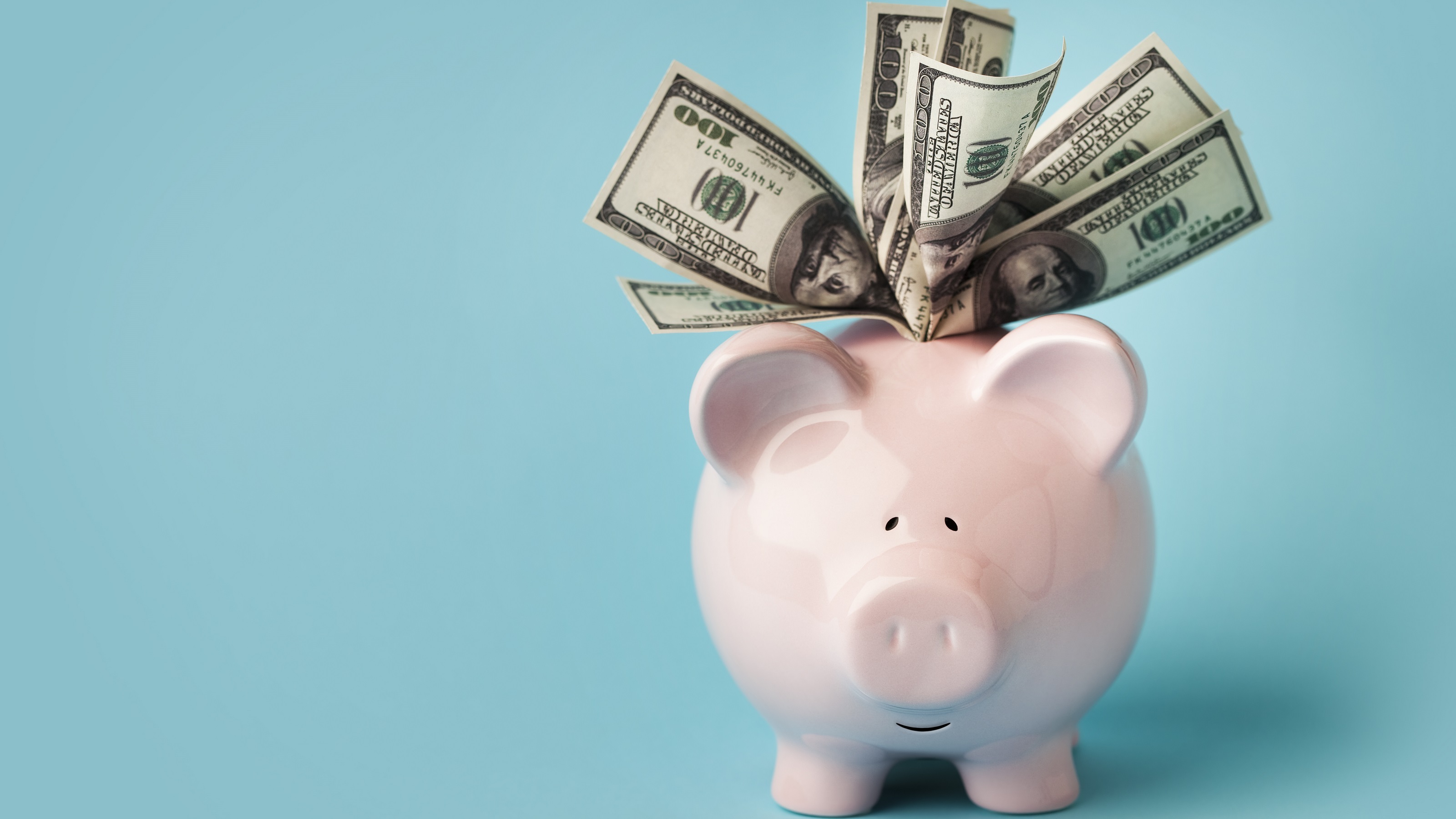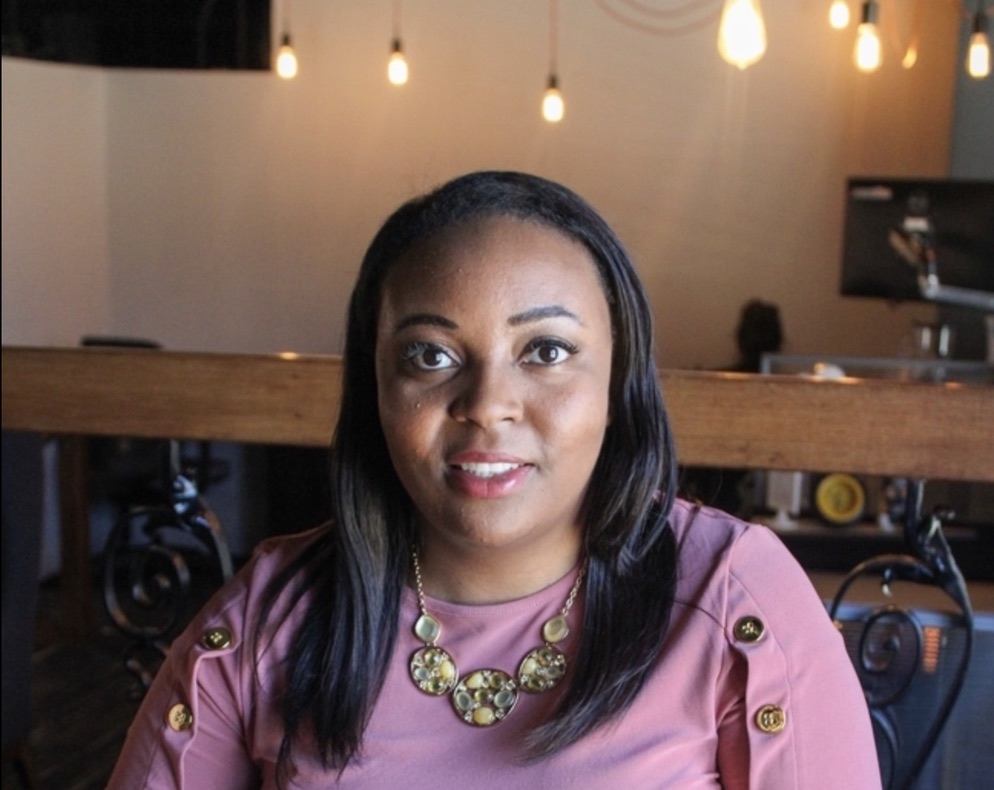All That Cash in Your Checking Account Might Be Holding You Back
Keeping too much cash in your checking account might seem safe, but it could be costing you in missed opportunities.

Profit and prosper with the best of Kiplinger's advice on investing, taxes, retirement, personal finance and much more. Delivered daily. Enter your email in the box and click Sign Me Up.
You are now subscribed
Your newsletter sign-up was successful
Want to add more newsletters?

Delivered daily
Kiplinger Today
Profit and prosper with the best of Kiplinger's advice on investing, taxes, retirement, personal finance and much more delivered daily. Smart money moves start here.

Sent five days a week
Kiplinger A Step Ahead
Get practical help to make better financial decisions in your everyday life, from spending to savings on top deals.

Delivered daily
Kiplinger Closing Bell
Get today's biggest financial and investing headlines delivered to your inbox every day the U.S. stock market is open.

Sent twice a week
Kiplinger Adviser Intel
Financial pros across the country share best practices and fresh tactics to preserve and grow your wealth.

Delivered weekly
Kiplinger Tax Tips
Trim your federal and state tax bills with practical tax-planning and tax-cutting strategies.

Sent twice a week
Kiplinger Retirement Tips
Your twice-a-week guide to planning and enjoying a financially secure and richly rewarding retirement

Sent bimonthly.
Kiplinger Adviser Angle
Insights for advisers, wealth managers and other financial professionals.

Sent twice a week
Kiplinger Investing Weekly
Your twice-a-week roundup of promising stocks, funds, companies and industries you should consider, ones you should avoid, and why.

Sent weekly for six weeks
Kiplinger Invest for Retirement
Your step-by-step six-part series on how to invest for retirement, from devising a successful strategy to exactly which investments to choose.

When it comes to money, there’s something undeniably comforting about seeing a healthy checking account balance. You might think, “More is better, right?” But if you’re parking large sums of money in a low-interest (or no-interest) checking account, your “safe” strategy could actually be holding your finances back.
That idle cash isn’t growing, and in fact, it's quietly losing value to inflation. While it may feel secure, keeping too much in checking means missing out on opportunities to earn interest, invest or pay down debt. Over time, this conservative approach could limit your financial progress and leave your money working less efficiently than it could.
Here’s a closer look at why that extra cash might be more of a drag than a cushion and smarter ways to put your money to work.
From just $107.88 $24.99 for Kiplinger Personal Finance
Become a smarter, better informed investor. Subscribe from just $107.88 $24.99, plus get up to 4 Special Issues

Sign up for Kiplinger’s Free Newsletters
Profit and prosper with the best of expert advice on investing, taxes, retirement, personal finance and more - straight to your e-mail.
Profit and prosper with the best of expert advice - straight to your e-mail.
Why overfunding your checking account could be costing you
Checking accounts are designed for easy access, not for growing wealth. Most traditional checking accounts earn little to no interest, and even high-interest checking accounts come with hoops to jump through like maintaining a high average monthly balance amount.
With inflation still lingering around 2.7% as of November, according to the Bureau of Labor Statistics, keeping large amounts of cash in a checking account means your money is actually losing value over time. Simply put: every dollar sitting idle in that account buys you less in the future.
To put this into perspective, if you keep $10,000 in a checking account that earns 0.01% interest, you’ll earn $1 after a year. That same $10,000 in a high-yield savings account at 4.5% APY? You’re looking at around $450 in interest, without lifting a finger.
How much should you really keep in your checking account?
While there’s no one-size-fits-all answer, a common rule of thumb is to keep enough in your checking account to cover one to two months’ worth of essential expenses, plus a small buffer (say, an extra $100 – $500) to prevent overdrafts.
So if your monthly bills and spending total around $3,000, keeping $3,000 to $6,500 in your checking account is more than enough. Anything beyond that might be better put to work elsewhere.
If you’re self-employed or have variable income, you might prefer to keep a little more on hand for peace of mind. But again, that doesn’t mean all of it needs to sit in your checking account.
Where should the extra cash go?
If you’re sitting on more than a few months’ worth of expenses in your checking account, consider these options:
1. High-Yield Savings accounts (HYSAs)
Online banks often offer APYs of 3% or more for high-yield savings accounts. These accounts are FDIC-insured, easy to open, and perfect for emergency funds or savings goals. You can transfer some of the money in your bank account to a HYSA so it can start earning more interest.
Treat this as an emergency fund or savings for another important goal. You can easily connect your personal bank account and make transfers whenever you want so you’ll still have access to the money should you need it with this option.
2. Certificates of Deposit (CDs)
If you won’t need the funds for a while, CDs can lock in a higher interest rate than savings accounts. Terms range from a few months to several years, and rates can exceed 3% depending on the term length.
Just keep in mind that most CDs have an early withdrawal penalty if you decide to withdraw the funds before the set maturity date. This penalty fee is usually a percentage of the interest you’ve earned on the CD, so it’s best to avoid early withdrawals. Some banks even offer penalty-free CDs but the interest rate may be lower or you may only have access to a shorter term.
3. Investment accounts
For longer-term goals (think five years or more), investing excess cash in a diversified portfolio can offer far greater returns than any bank account. Just make sure your emergency fund is covered first. Investing is not where you want to park money meant for your mortgage.
You can open a brokerage account, an individual retirement account (IRA), or another type of investment account depending on your needs. Consider speaking with a financial adviser to help better understand your options based on your unique situation and financial goals.
4. Pay Down High-Interest Debt
Before you stash extra cash in savings or investments, ask yourself: Are you carrying any high-interest debt? If so, paying it down could be one of the smartest and most impactful financial moves you can make.
Credit card interest rates often hover around 20% or more, which means the longer you carry a balance, the more you’re spending in interest which is basically giving your money away. By comparison, even a great investment might average 7% to 10% annually. That makes debt repayment a guaranteed return on your money.
Explore and compare some of today's top savings account offers with the tool below, powered by Bankrate:
Why do we hold on to so much cash?
For some people, keeping a large checking balance isn’t about strategy, but security. It feels good to know your bills are covered. It feels even better to know that a payment won’t get returned if something unexpected happens.
According to a survey by Empower, nearly one-third of Americans say they feel safer and more in control when they have extra cash on hand, even if it means missing out on higher returns elsewhere.
Having more than enough money in your checking account can also stem from past event that led to emotional trauma, whether it was getting laid off before and not being able to find another job for six months, or seeing your parents struggle to pay the bills when you were a child. Perhaps, others simply fear the negative impact of a potential financial crisis that hasn’t even happened yet.
Whatever your reasons, feeling financially secure and having a clear strategy for your money can coexist.
You can keep enough in checking to feel comfortable while still moving the rest to accounts that help you grow. Automating transfers to savings or investment accounts can help ease the mental hurdle. Start small if you need to, but getting started with the necessary changes to reroute your excess checking account funds is key.
So take a look at your balance. If your checking account looks a little too padded, it might be time to put your money to work because it should be doing more than just sitting there.
Related Content
Profit and prosper with the best of Kiplinger's advice on investing, taxes, retirement, personal finance and much more. Delivered daily. Enter your email in the box and click Sign Me Up.

Choncé is a personal finance freelance writer who enjoys writing about eCommerce, savings, banking, credit cards, and insurance. Having a background in journalism, she decided to dive deep into the world of content writing in 2013 after noticing many publications transitioning to digital formats. She has more than 10 years of experience writing content and graduated from Northern Illinois University.
-
 Quiz: Do You Know How to Avoid the "Medigap Trap?"
Quiz: Do You Know How to Avoid the "Medigap Trap?"Quiz Test your basic knowledge of the "Medigap Trap" in our quick quiz.
-
 5 Top Tax-Efficient Mutual Funds for Smarter Investing
5 Top Tax-Efficient Mutual Funds for Smarter InvestingMutual funds are many things, but "tax-friendly" usually isn't one of them. These are the exceptions.
-
 AI Sparks Existential Crisis for Software Stocks
AI Sparks Existential Crisis for Software StocksThe Kiplinger Letter Fears that SaaS subscription software could be rendered obsolete by artificial intelligence make investors jittery.
-
 One of the Most Powerful Wealth-Building Moves a Woman Can Make: A Midcareer Pivot
One of the Most Powerful Wealth-Building Moves a Woman Can Make: A Midcareer PivotIf it feels like you can't sustain what you're doing for the next 20 years, it's time for an honest look at what's draining you and what energizes you.
-
 I'm a Wealth Adviser Obsessed With Mahjong: Here Are 8 Ways It Can Teach Us How to Manage Our Money
I'm a Wealth Adviser Obsessed With Mahjong: Here Are 8 Ways It Can Teach Us How to Manage Our MoneyThis increasingly popular Chinese game can teach us not only how to help manage our money but also how important it is to connect with other people.
-
 Looking for a Financial Book That Won't Put Your Young Adult to Sleep? This One Makes 'Cents'
Looking for a Financial Book That Won't Put Your Young Adult to Sleep? This One Makes 'Cents'"Wealth Your Way" by Cosmo DeStefano offers a highly accessible guide for young adults and their parents on building wealth through simple, consistent habits.
-
 My Spouse and I Are Saving Money for a Down Payment on a House. Which Savings Account is the Best Way to Reach Our Goal?
My Spouse and I Are Saving Money for a Down Payment on a House. Which Savings Account is the Best Way to Reach Our Goal?Learn how timing matters when it comes to choosing the right account.
-
 We're 78 and Want to Use Our 2026 RMD to Treat Our Kids and Grandkids to a Vacation. How Should We Approach This?
We're 78 and Want to Use Our 2026 RMD to Treat Our Kids and Grandkids to a Vacation. How Should We Approach This?An extended family vacation can be a fun and bonding experience if planned well. Here are tips from travel experts.
-
 My First $1 Million: Retired From Real Estate, 75, San Francisco
My First $1 Million: Retired From Real Estate, 75, San FranciscoEver wonder how someone who's made a million dollars or more did it? Kiplinger's My First $1 Million series uncovers the answers.
-
 To Love, Honor and Make Financial Decisions as Equal Partners
To Love, Honor and Make Financial Decisions as Equal PartnersEnsuring both partners are engaged in financial decisions isn't just about fairness — it's a risk-management strategy that protects against costly crises.
-
 Top 5 Career Lessons From the 2026 Winter Olympics (So Far)
Top 5 Career Lessons From the 2026 Winter Olympics (So Far)Five lessons to learn from the 2026 Winter Olympics for your career and finances.